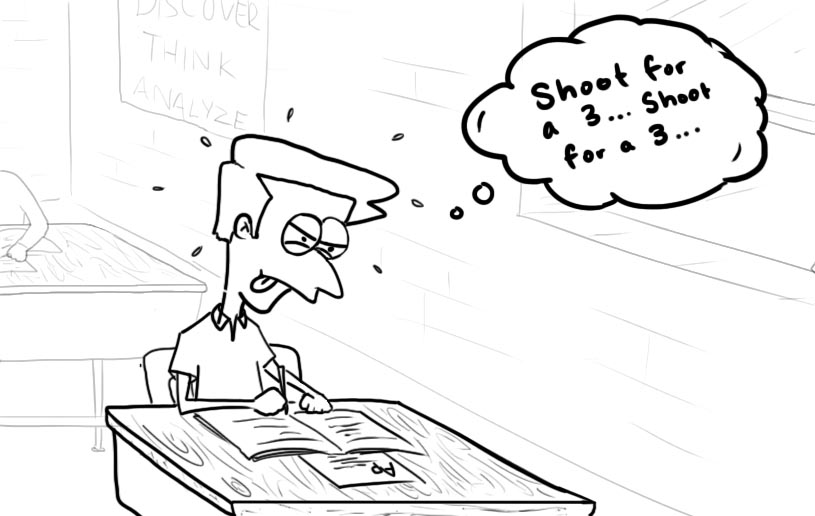The Board of Visitors voiced its opposition to a bill currently under consideration in the Virginia General Assembly, HB 1336, that would standardize Advanced Placement (AP) and International Baccalaureate (IB) test scores accepted for credit across all state colleges and universities. As the law currently stands in Virginia, institutions are allowed to set their own AP and IB criteria, which can lead to discrepancies over which scores merit credit.
Differences can present a challenge to prospective college students. Entering as a freshman with credit hours in hand can give a student a real advantage; college is not cheap, and having AP or IB credit may motivate a person to choose a school that gives more credit for his or her test scores, cutting costs and saving time significantly.
Under the current system, some students (including, but not limited to, low-income students) may be discouraged from attending schools like the College with rigorous test standards. There are scholarships, loans and fee reductions available, but of course none of these resources are unlimited or without flaw.
There is also a concern within state governments that disparate AP and IB credit policies encourage some students to look out of state for more generous options. Illinois passed an AP standardization bill in August of 2015, one of 16 states to do so.
The General Assembly’s intent with HB 1336 is understandable, if maybe not wholly laudable. But the legislation is not the best way to go about improving standards in higher education.
We believe, as the Board of Visitors does, that the College should have the prerogative to set its own standards for college preparatory tests.
We believe, as the Board of Visitors does, that the College should have the prerogative to set its own standards for college preparatory tests. The College has a unique understanding of the degree to which AP or IB programs will ready students for coursework at our school. Courses are taught differently across state institutions, and so pre-college curricula may not fit as well at one university as it does another. There is too much variation in course or program expectations to establish a useful, applicable standard.
More importantly, college preparatory programs (and here we refer explicitly to Advanced Placement) are fundamentally inadequate. AP exams and course guidelines are designed, administered and, not least of all, sold by the College Board, a nominal nonprofit that boasts annual revenue in the hundreds of millions. College Board charges students $92 per test, and while some school systems cover those fees, the burden of taking multiple AP exams (ostensibly to save money down the road) accumulates quickly.
Students are left underprepared for the critical rigor of college, having spent a year committing facts to memory rather than engaging with concepts and uncertainty.
The hefty price would be more tolerable if the AP program actually presented high school students with a college-like environment. Too often, however, AP classes are taught exclusively to the test. Students are left underprepared for the critical rigor of college, having spent a year committing facts to memory rather than engaging with concepts and uncertainty. There is no guarantee that an AP score indicates college preparedness.
We are therefore sympathetic to the College’s stance against statewide AP standards. The General Assembly’s impulse — to make the college decision process simpler for high schoolers — is reasonable, but it fails to accommodate differences between universities. Changes in legislation notwithstanding, we’d like to see the College take a stand against the College Board and Advanced Placement.
William and Mary is not a private institution, and it could expect a drop in applicants if it was to deny AP credit. Unlike Dartmouth or Brown, the College is not likely to stop awarding AP credit. No college or university could singlehandedly promote reform; any effective action must be collective. We understand that potential changes are limited, so we don’t expect a sudden, unilateral rejection of the College Board.
Instead, the College should shake itself from the ambivalence it has shown toward reform. William and Mary conspicuously failed to sign on to a 2016 Harvard report endorsed by Yale and the University of Virginia that seeks to move college admissions away from testing and toward a more holistic system of evaluation. William and Mary needs to add its voice to those calling for a fairer and less harmful college prep regime.
The staff editorial represents the opinion of The Flat Hat. The editorial board, which is elected by The Flat Hat’s section editors and executive staff, consists of Aine Cain, Isabel Larroca, Miguel Locsin, Quinn Monette and Kayla Sharpe. Emily Chaumont has been recused from this editorial. The Flat Hat welcomes submissions to the Opinions section. Limit letters to 250 words and columns to 650 words. Letters, columns, graphics and cartoons reflect the view of the author only. Email submissions to fhopinions@gmail.com.





























